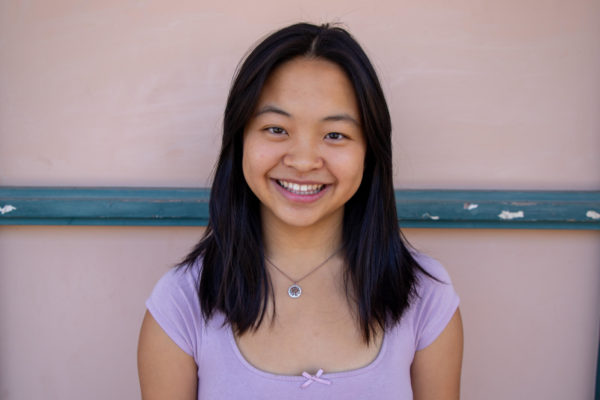After graduation, 96% of Miramonte students plan to attend a university. That means that at Miramonte alone, about 280 students spend their first semester of senior year each applying to eight to 12 colleges — or less or more; that’s just the advised number. In some form, this process happens at nearly every high school in the nation. In the U.S., over a million students (1,000,000!) send in applications — and that’s just the Common App.
Whew. That’s a lot of high school seniors and too many applications. Collectively, so much time and energy is spent building activity lists and brainstorming personal statements and worrying about ACT scores and…the list is never-ending. The (mis)perception of college applications is clear. It is an exhausting, tedious process that eats first-semester seniors alive, draining them of every second of free time and every ounce of happiness.
Well, not quite. Yes, it is true that essay writing takes time, and, depending on the class you’re taking, it may be exhausting to juggle with your school workload. But, the benefits of the college application process (besides getting into a school that is a good fit for you) are many — and worthwhile.
“I had a lot of misconceptions about the college application process. It was more intense than I expected, but it also helped me understand more about myself,” senior and college app survivor Sana Anand said.
For the sake of simplicity, I will focus on the Common Application and the UC application.
Let’s start with the activities list. Submitted with your essays and personal information, this is a compilation of all the impactful extracurricular activities, hobbies, and jobs you have participated in over the past four years (10 slots available for the Common App, and 20 for UCs). For some, filling out this list seems like a dry and tedious task. But, for the smart applicant, this can be enjoyable and — dare I say — fun.
Exhibit A: Instead of describing babysitting in the typical, expected way, here’s how I filled out the allotted 150 characters on my application:
“Babysit and pet-sit for 7 families. Hyperactive children, attention-needy pets, thirsty houseplants — I care for them all. Red Cross certified.”
Looking back, that may have been a bit much. But, do you get what I’m saying? Enjoy the process.
The same idea applies to your essays. “I thought essays had to be these incredible pieces of writing with profound ideas. However, I learned that your essays, while they need to be good, should rather showcase who you are as a person and not what you think colleges want to see,” senior Shauna Lindheim (another brave college app survivor) said.
Some words of advice: for the personal statement specifically, don’t approach it as a difficult-to-tackle essay that will determine the course of the rest of your life. Start it first as a simple journaling exercise. Brainstorm. Write. Let your creative brain juices flow. Then, when you pin down a uniquely-you idea, dive deeper.
The supplemental essays are a different story. To be honest, many schools require similar supplemental essays, making it tempting to reuse and recycle (I fell victim to this). However, keep in mind that admissions officers often use supplementals to gauge the applicant’s interest in the school. So, if you find yourself completely unmotivated to write a supplemental and unable to fill it with interesting, honest details, take a second to reevaluate how much you truly want to attend that school.
The UC Personal-Insight Questions (PIQs) are a second different story altogether. Unlike the personal statement which can have more touches of creative writing, PIQs tend to be more direct, requiring you to lay out exactly what you want to say with minimal fluff. Out of the eight possible prompts, you choose your favorite four to write and submit. Each PIQ has a maximum word count of only 350 — write with precision and concision, and be intentional with your word choice.
As we’re nearing the end of this article, I want to leave you with this disclaimer: take everything I just said — and everything your parents, friends, and college counselors say — with a grain of salt (including this sentence). For the rising seniors out there, as you begin your applications this fall, many people will have opinions, and many of them will contradict each other. Follow your gut, and do what you think is best! For the 96% of you planning to attend college as the Class of 2029 (or even 2030 — 2031, get out of here; it’s way too early), enjoy the application process and see it as a chance to reflect and grow.
Below are some wise words from Miramonte’s graduating Class of 2024.
SANA: “When I was going through my extracurriculars and accomplishments, I hated talking about it. It felt like I was bragging or embellishing when I was really just highlighting things I’ve done. I think getting over that mental hurdle helped me write essays about myself in a meaningful way,” senior Sana Anand said.
SHAUNA: “I wish I knew that it was all going to be okay. I was so stressed the summer leading up to senior year. If I could go back, I would tell myself to take a breath and enjoy the process” senior Shauna Lindheim said.
MATTHEW: “I didn’t start essays and the applications when I should’ve. As a result, I ended up having to rush my Common App essay and also some of the supplementals for my EA schools,” senior Matthew Chan said. Now, older and wiser, he suggests, “Start the Common App essay first. I focused way too much on my UC essays and that really messed me up.”
ABIGAIL: “Balance is always key when it comes to application season. Make deadlines for yourself and plan ahead. Due to the sped-up timeline of an arts major, this was key for me. The process taught me to never give up. I was rejected by many schools, but eventually, I was accepted by a dream school I never thought I could get into,” senior Abigail Gardner said.









